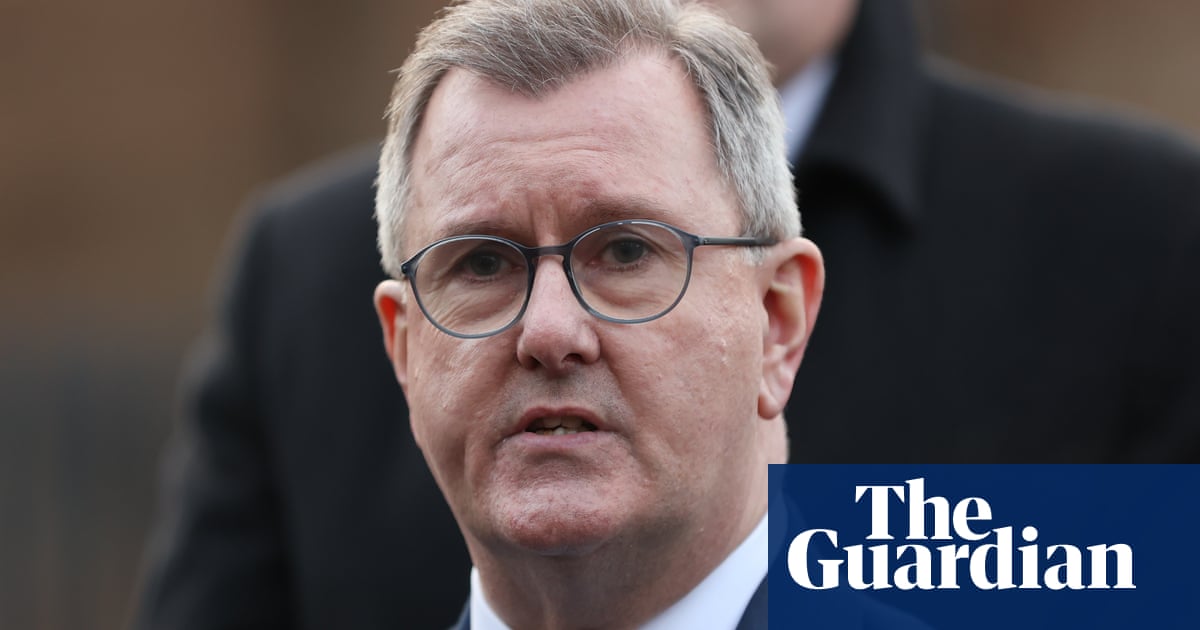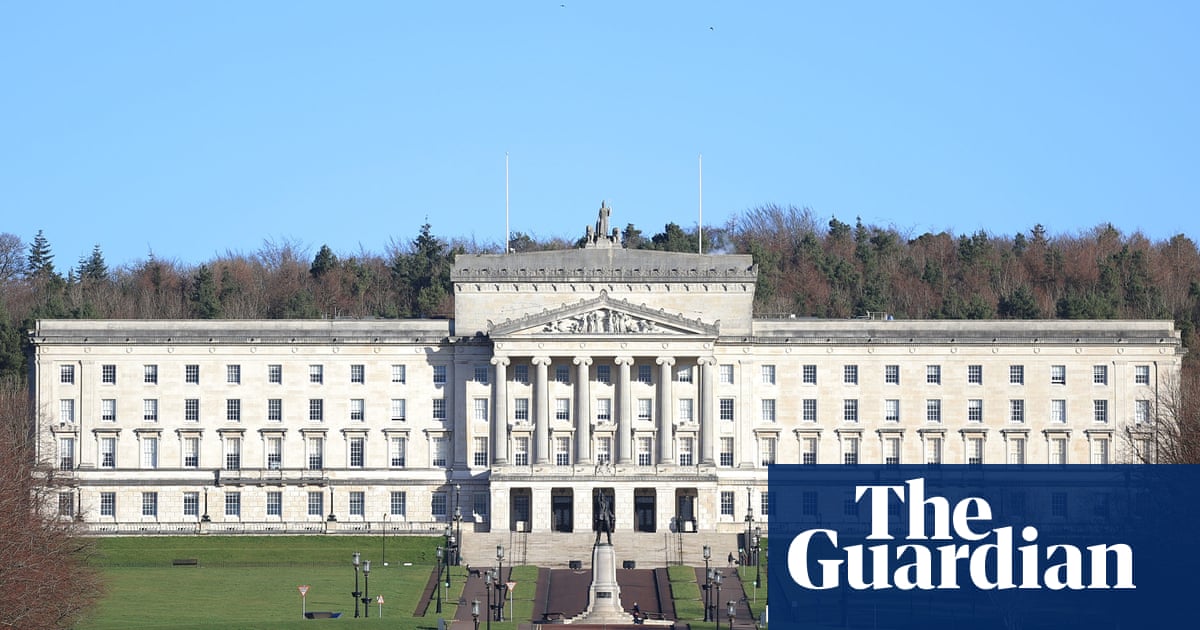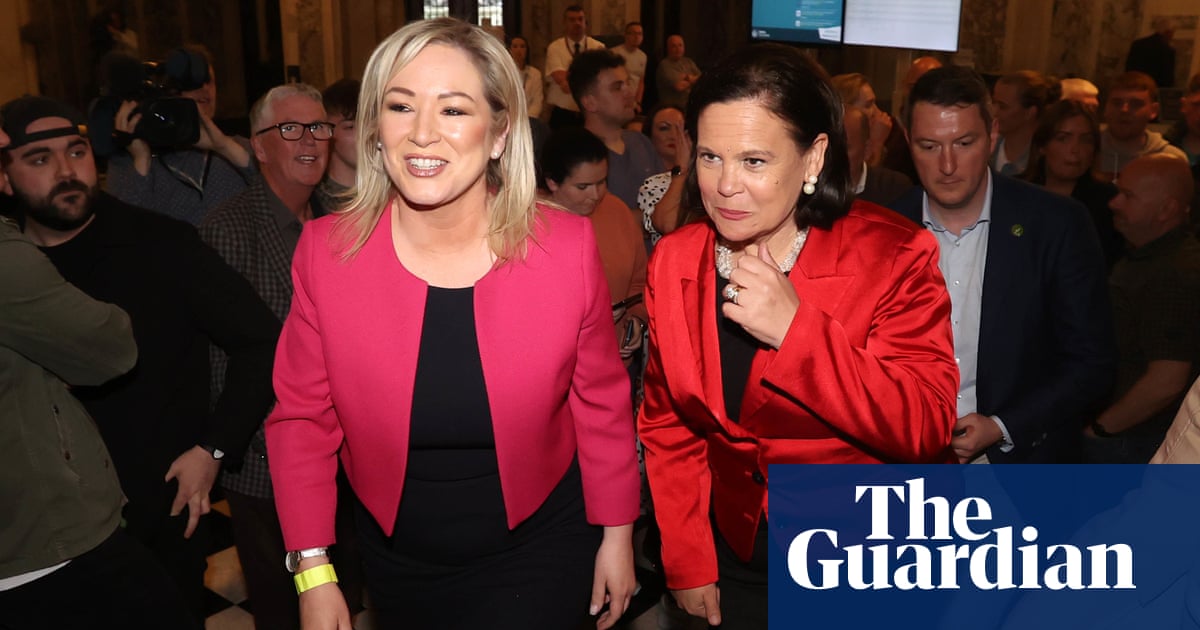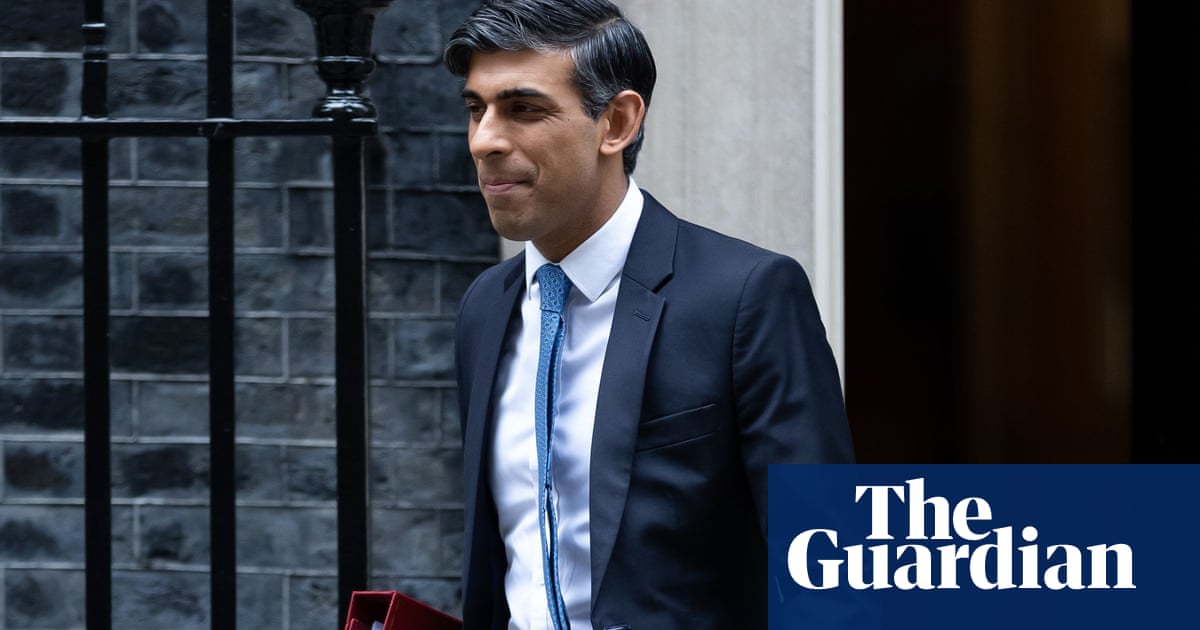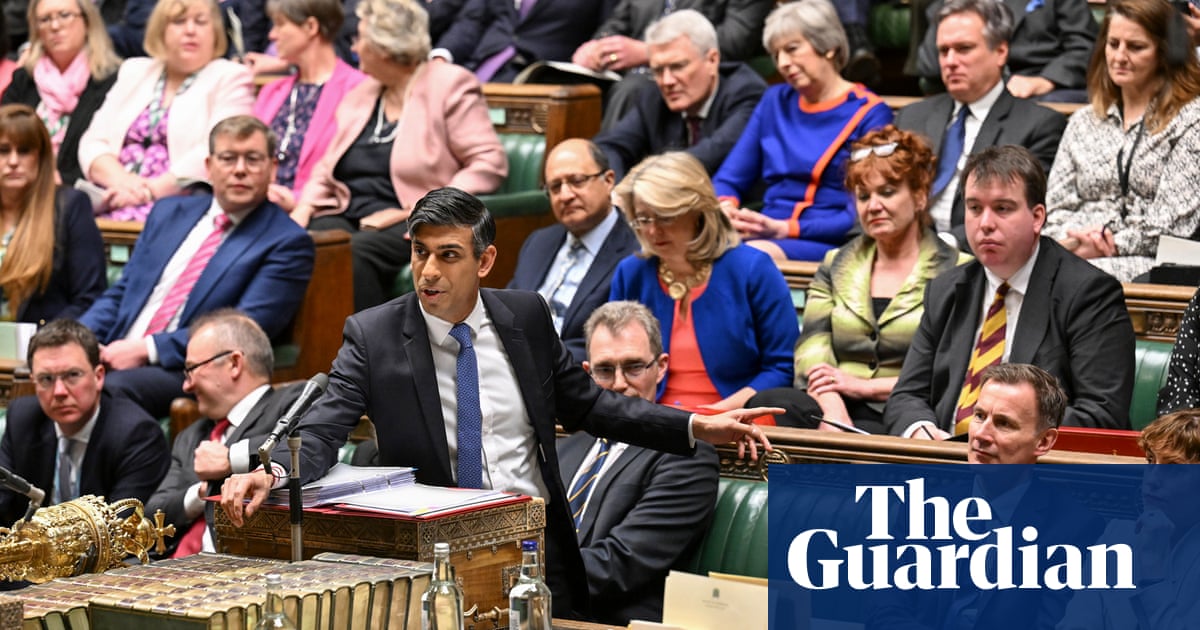
New rules to smooth post-Brexit trade between Great Britain and Northern Ireland have been unveiled by the government as part of a deal with the Democratic Unionist party that will restore the Stormont executive and install a Sinn Féin first minister.
A command paper titled Safeguarding the Union was published on Wednesday to allay DUP fears about Northern Ireland’s place in the UK and to end a two-year boycott of power sharing that has destabilised the country.
The measures remove routine checks on goods from Great Britain that are destined to remain in Northern Ireland and replace them with a “UK internal market system” for goods that remain within the UK.
The government has promised to amend domestic law so that new EU laws will not automatically apply in Northern Ireland and must first be subject to democratic oversight by the Stormont assembly. The 76-page command paper also includes legislative measures – to be fast-tracked through Westminster on Thursday – to affirm Northern Ireland’s constitutional position in the UK.
Downing Street said the deal entailed significant changes to the “operation” of the post-Brexit Windsor framework without altering its “fundamentals”.
Rishi Sunak told the Commons the proposals would end Northern Ireland’s deadlock. “After two years without an executive, there is now a prospect of power sharing back up and running, strengthening our union, giving people the local, accountable government that they need, and offering a brighter future for Northern Ireland,” he said.
Ireland’s foreign minister, Micheál Martin, welcomed the proposals as “sensible” and predicted Brussels would agree: “I do not anticipate any particular difficulties in respect of the EU side.”
Maroš Šefčovič, the European Commission’s vice-president who is in charge of UK relations, said the commission would analyse the text carefully before taking a position.
Half a dozen Tory Brexiters, including Bill Cash and Theresa Villiers, questioned whether the UK would still be able to diverge from EU laws under the terms of the agreement. The Tory MP Richard Drax described the application of EU laws in Northern Ireland as an “axe still very much grinding away, which we must get rid of”. But the Northern Ireland secretary, Chris Heaton-Harris, insisted that the new plan did not affect government’s ability to diverge from EU legislation.
Privately, two Tory sources said that influential MPs from the Brexiter European Research Group were minded to support the government’s plan, which is to be voted on by MPs on Thursday. The veteran Brexiter Bill Cash had told other Tory MPs that given the DUP was backing the plan, he intended to support it, one person who had spoken to him said. If most of the ERG backs it, the legislation will sail through the Commons with negligible Tory opposition.
In any event, the plan looks sure to pass, as Labour has said it will vote in favour. The shadow Northern Ireland secretary, Hilary Benn, said it was “our chance to restore to the people of Northern Ireland that which they desperately need but have been without for almost two years: a functioning government”.
The DUP leader, Jeffrey Donaldson, said the package would restore Northern Ireland’s place in the UK and its internal market. “The border in the Irish Sea is removed,” he told the BBC.
He praised the prime minister for softening the Northern Ireland protocol in last year’s Windsor agreement, and then amending that agreement. “Credit to Rishi Sunak,” said Donaldson. “He worked with us through the secretary of state and a team of officials to make and deliver the further changes.”
The DUP leader contrasted Sunak with his predecessor, who agreed a border in the Irish Sea in order to clinch a Brexit deal with the EU. “While Boris Johnson promised us a lot of things, he didn’t deliver them,” he said.
At a joint press conference with Donaldson, Heaton-Harris said the protracted negotiations had taught him a lot about the unionist tradition. “I’ve had a decent education – I’m probably on GCSE level at this point – but I’m sure it will continue until I get my master’s.”
A significant minority within the DUP is believed to oppose the deal, including Westminster veterans such as Sammy Wilson, who told the Commons that Northern Ireland remained subject to EU laws. “This is a result of this spineless, weak-kneed, Brexit-betraying government, refusing to take on the EU and its interference in Northern Ireland.”
Donaldson’s leadership appeared “safe-ish” because dissenters were outnumbered and would not risk electoral oblivion by defecting to the hardline Traditional Unionist Voice, said Jon Tonge, a politics professor at the University of Liverpool and an authority on the DUP. “They can huff and puff and go back to Stormont scuffing their feet on the ground, but they recognise their leader has got a fairly good deal.”
Other parties in Northern Ireland welcomed the agreement and were preparing to return to Stormont as early as Saturday to elect an assembly speaker and appoint an executive led by Sinn Féin’s Michelle O’Neill as first minister and a DUP member as deputy first minister – reflecting the 2022 election, in which Sinn Féin overtook the DUP as the biggest party.
That will be a milestone – the first nationalist first minister in a state that was designed in 1921 to have a permanent unionist majority.
O’Neill said the partition of the island of Ireland had “failed” its people. “The very fact that for the first time someone from Sinn Féin, a nationalist, a republican woman from Tyrone, will be first minister – that speaks to the change that’s happening,” she said.




